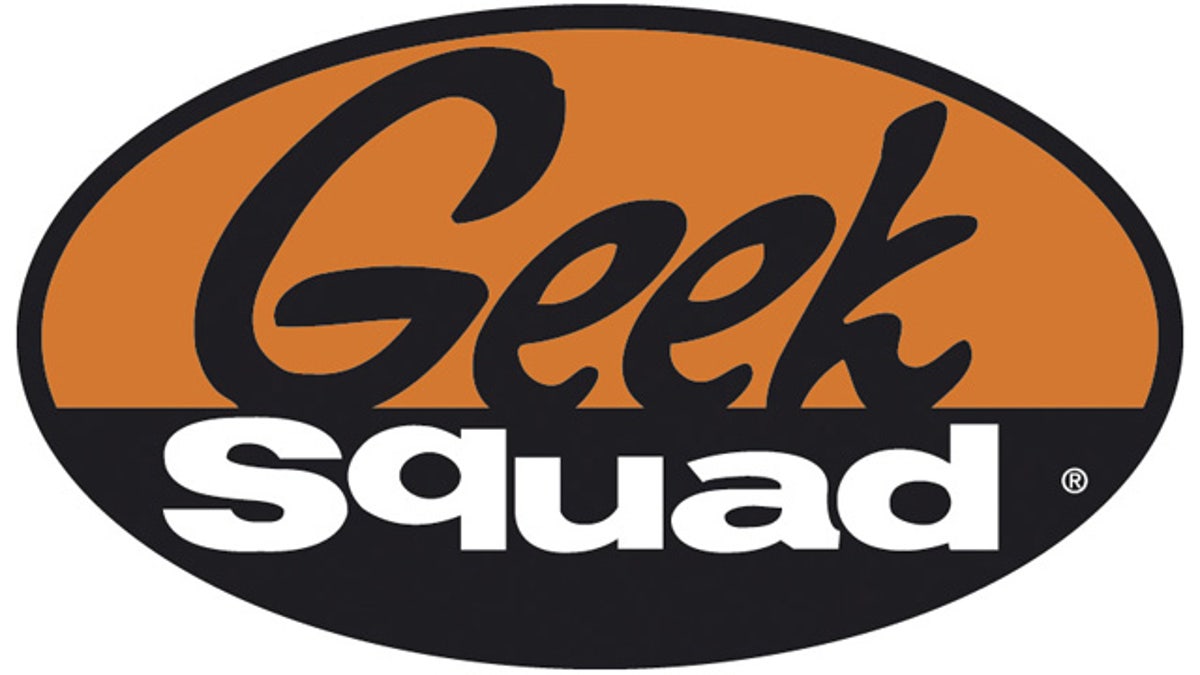
(The Geek Squad)
You've got tech questions, we've found the answers. We've asked the tech experts at the Geek Squad to help you make the most of your technology, answering your thorniest tech questions. So if you're wondering what to buy, how to plug it in, or how to fix it, the Geek Squad can help.
This week, Geek Squad agent James Perry answers YOUR questions.
"My iPhone battery is a year and a half old. It has suddenly started running down in half a day. I know that it might simply have "gone bad," but I'd like to know about other possibilities. I'm hooked to a network that continually reaches for my Outlook items -- is that it?" -- Bill Adams
Sometimes batteries do just go bad -- and a good tip to keep them working longer is to allow them to go almost all the way down before charging them back up.
But more often than not, with most modern smartphones it’s the background applications that cause battery drain part way through the day. Having Outlook always scanning for your email might keep you in the loop, but it’s a drain on the battery life; that means your phone is always on -- even when the screen is off its still sending and receiving information.
An easy fix is to have it just scan for new messages each time you open the application up. Another quick tip would be to keep the Wi-Fi adapter turned off -- it’s another item that is always on and can affect battery life. And most phones that run 3G and 4G fast enough on those networks.
"Why can't someone create an operating system that is impervious to viruses, spyware and other unwanted communication?" -- Steve Arnold
Impossible. And I'll tell you why.
The reason there isn’t an operating system today that's completely virus-free is because there are too many outside factors that can cause an infection in a computer. Most infections come not from intrinsic security flaws in the OS but from the user mistyping a website in their browser, downloading "music" or "movies" for free with programs like Limewire or Bearshare, or clicking on that popup that just seems too good to leave alone.
Also, we must understand that viruses are treated like a blanket term for anything that causes your computer to act abnormally. In fact, for most modern Operating Systems like Windows 7 it’s very hard to get a virus on the computer, but it is very easy to get Malware, Spyware, and Rougeware on your PC.
And if the computer is running a Proper Antivirus and Anti Spyware program (most programs cover both), keeping your Operating System updates up to date, and practicing some safe Internet habits will keep your computer virus free for a long time.
"I have a PC and laptop (from 2005) and both have slowed down to almost nothing. They were both great units when they were working. Is there anything I can do to get them back to their original running speed? New hard drive, perhaps?" -- Ron Michaels
We're all trying to get the most out of our computers … and who wants to buy a new one every couple of years?
What kills the speed of most computers, especially older ones, is the lack of memory. And don't get that confused with your hard drive. RAM (short for random access memory) is a small amount of memory for short term storage and computation; it directly affects the speed in your computer. Hard drives are spinning platters that store your data in the longer term, and they're less involved in the speed of computing.
The more programs running on startup, the hundreds of updates installed to the operating system, all those fancy toolbars -- they're all taking up memory. So the easiest way to get your computer running like new again is to upgrade your memory and turn off or uninstall any programs you don’t need. To find out the right kind of memory or for help eliminating those unwanted programs, stop in to your local Geek Squad.
"How close are we to getting to use gravity to our advantage in space and around the planet, e.g. mercury-covered gyroscopes controlled by sound frequencies?" -- Martin Johnson
Really? You come to the Geek Squad for this? Have you tried asking NASA's space squad?
Got a question? E-mail us at AsktheGeeks@foxnews.com and we'll relay it to the Geek Squad. Next week, the Squad will answer the most interesting or most frequently asked questions.




















